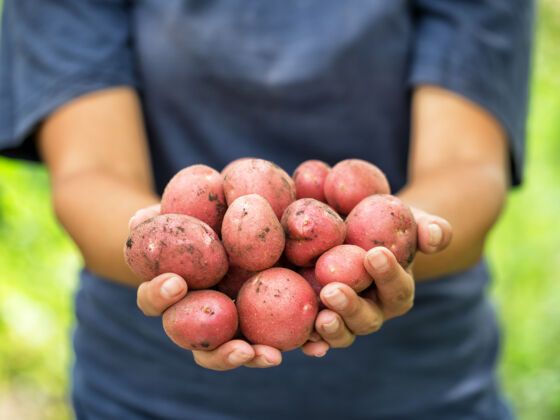Some gardening testimonials
I asked members of the Facebook group Oak Park Hates Veggies — which was created in response to this story — to send me photos and a little blurb explaining why they think gardening is important.
Jane Gibson from Lawrence, Kansas
“After years of trying to grow tomatoes, greens, and other mouth-wateringly delicious vegetables in the usual, more private spaces of our shady urban home, we realized we’d have to garden in the front yard because that is where the sun is. Gardening for us is a family affair, but it turns out it is also a community matter. In the garden,my husband and I are brought together in fun and satisfying ways with our children and grandchildren, friends, neighbors, other gardeners, and the earth.”
